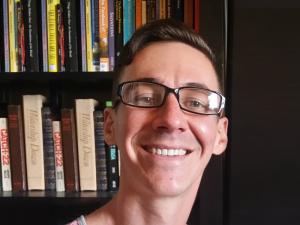
The journey of faith can be, at its best, a grounding experience, but when faith itself crumbles, we’re left treading water in what feels like an endless sea of doubt, fear, and self-questioning. That’s the heart of the story Michelle Collins and I dive into in Learning to Float. In this book, we talk about what it really means to “deconstruct”—a term many use loosely without acknowledging its often devastating, exhausting, and emotionally taxing reality.
Why Deconstruction Is Not Just “Losing Faith”
Let’s get one thing clear: deconstruction is not simply about tossing your beliefs aside. For many, it’s a response to deeply rooted traumas and ingrained doctrines that no longer align with personal experiences or values. Some folks face a clash between what they were taught and what they now know, while others are wounded by church-induced shame, judgment, or exclusion. For some, it’s a philosophical question—What does faith mean without certainty? For others, it’s an existential crisis that touches every part of their being.
The Unspoken Emotional Toll of Deconstruction
Deconstruction is anything but straightforward. We often want a clear answer, a “step-by-step” process, but if you’ve ever tried to untangle a ball of yarn only to create more knots, you know that isn’t how life works. When we take a hammer to the walls of belief systems that have been constructed brick by brick since childhood, there’s often an overwhelming sense of grief and isolation.
Many people, myself included, lose community, support, and, in some cases, a sense of identity. How could we not feel untethered? It’s like floating in the middle of an ocean without a single buoy in sight. And while some manage to “reconstruct” something from the ruins of their previous faith, for others, there may never be a neatly rebuilt belief system at the end. That’s okay, too.
Deconstruction as a Spectrum of Experiences
For some, deconstruction might just mean rethinking their view on certain doctrines or biblical interpretations. They may stay within their religious community but with a fresh perspective. For others, it’s a total overhaul—where they find themselves questioning not just doctrine but the very existence of God or what it means to be human without a divine anchor. Some are quick to rebuild their faith into a new form, while others spend years, or even a lifetime, in the “floating” phase, unsure of what they truly believe.
The truth is, deconstruction is highly individual and rarely fits into a formulaic process. This is a journey that each person has to navigate in their own way, but no one should feel the need to adhere to someone else’s checklist. It’s a process, not a destination.
Why “Faith” and “Certainty” Aren’t the Same Thing
One of the hardest realizations during deconstruction is that faith doesn’t require certainty. In fact, certainty can often become a hindrance to growth and understanding. Faith should be open to doubt and questions, allowing us to evolve and adapt. Yet, in many faith traditions, doubt is treated like a sin or weakness rather than a natural part of the human experience. We’re taught that faith means being sure of everything—a concept that is not only unsustainable but also stifling to those of us who seek genuine truth.
This notion that faith is not certainty is a liberation, but it’s also terrifying. We often cling to beliefs as if they’re life preservers, hoping they’ll keep us afloat when, in reality, they can drag us down into a whirlpool of guilt, fear, and shame.
The Psychological Impact of Leaving Faith Behind
In the book, we delve into the emotional and psychological toll that deconstruction can have. It’s not just about challenging religious teachings; it’s about facing the fear, guilt, and shame that can haunt us from years of indoctrination. The mental health community may not have a clear diagnosis for the effects of religious trauma, but it’s a real and often debilitating experience for many who deconstruct. Feelings of anxiety, depression, and even obsessive-compulsive behaviors can manifest as we struggle to find a new sense of stability in a world without the frameworks we once relied on.
The impact of deconstruction is further compounded by the stigma surrounding it. Many people are silenced or ostracized by their religious communities for daring to question. This lack of support makes an already painful journey even more isolating and overwhelming.
Finding Community in the Midst of Isolation
One of the biggest takeaways from Learning to Float is the importance of community in the deconstruction process. No one should have to face this journey alone. When I went through my own struggles, I realized how invaluable it was to have people who understood what I was experiencing. Deconstruction doesn’t have to be a lonely journey. By sharing our stories and finding common ground, we create spaces where vulnerability and doubt are not just accepted but encouraged.
Our book isn’t here to give you a step-by-step guide to deconstruction or to tell you what to believe. Instead, it’s a safe space—a virtual hand reaching out to tell you that you’re not alone.
PICK UP MY NEW BOOK, HERETIC, TOO!, OUT NOW.
Also, if you’ve been digging my work on here, and want to see me be able to continue writing as close to full-time as humanly possible, please take a look at my Patreon page at www.patreon.com/mjdistefano. Even $1 a month helps bigly!














